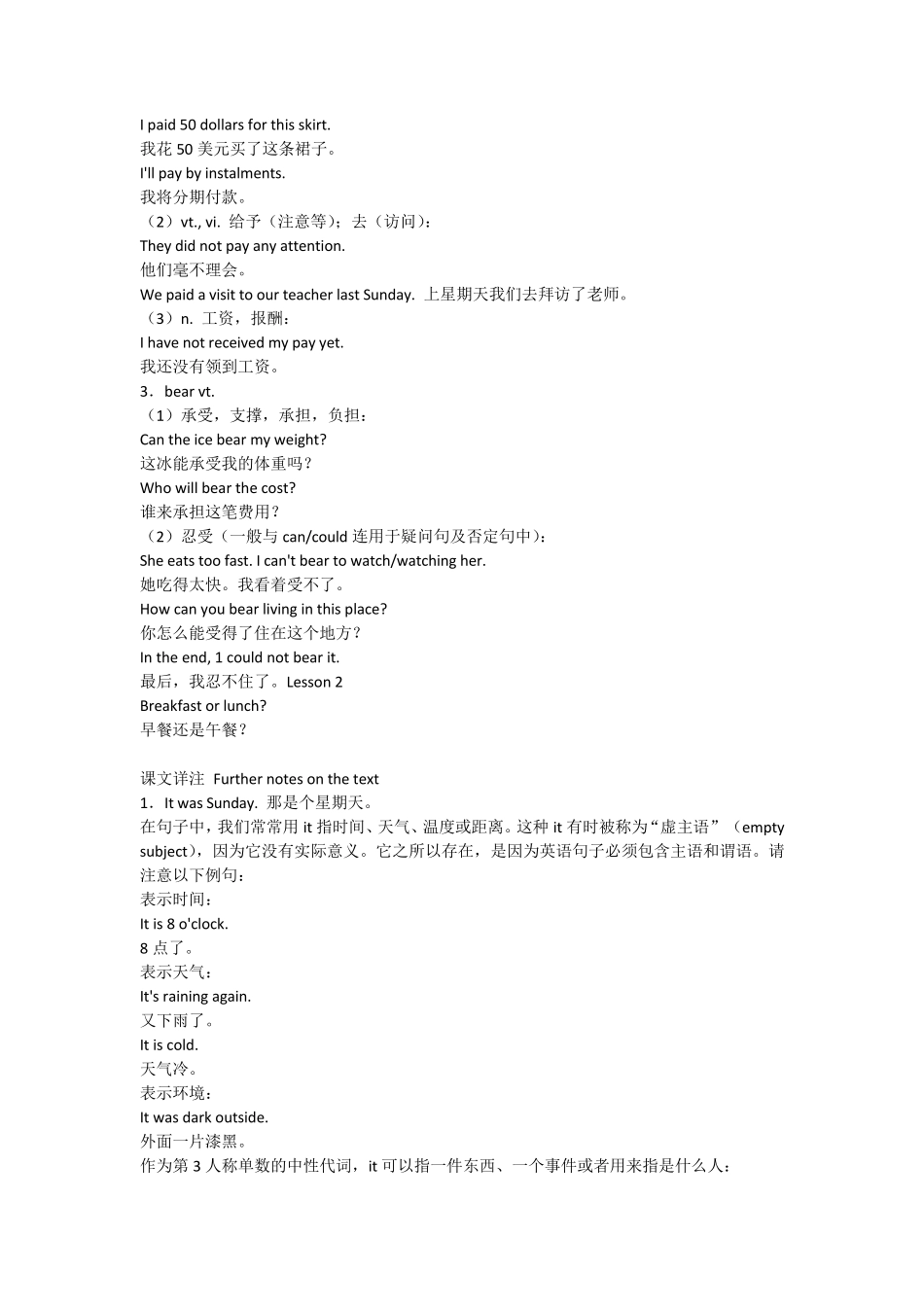Lesson 1 A private conversation 私人谈话 课文详注 Further notes on the text 1.Last week I went to the theatre.上星期我去看戏。 (1)句首的“Last week”点明叙述的事情发生的时间是上星期。因此整篇课文的时态基本上应是过去时(包括过去进行时),直接引语部分的时态除外。 (2)动词 go 的原义是离开一个地方去另一个地方,与介词 to 连用后,常加上主语所要去的目的地来代表主语的动作目的。课文中 go to the theatre = go to the theatre to see a play,即去剧场看戏。类似的还有 go to the cinema = go to the cinema to see a film(去电影院看电影)。这种表达方式简明扼要。请注意在以下的短语中名词前通常不加冠词: go to school 上学 go to bed 上床,睡觉 go to church 上教堂,去做礼拜(cf.第 1 册第 68 课at school, at church;第 1 册第 85 课have been to school/church) 2.had a very good seat,座位很好。 seat 一般指戏院、汽车等配置的固定座位,也可以抽象地表示“座位”或“位子”的概念: the front seat of a car 汽车的前座 Take a seat, please. 请坐。 3.The play was very interesting. 戏很有意思。 interesting 属于现在分词形式的形容词,意思是“使人感兴趣”。 它通常与非人称主语连用或修饰某个事物: This is an interesting book/idea. 这是一本有趣的书/一个令人感兴趣的主意。 4.…were sitting behind me. They were talking loudly.……坐在我的身后,大声地说着话。 这两句的时态为过去进行时。(cf.第 7 课语法) 5.I got very angry. 我非常生气。 get 在这里有“逐渐变得”的含义,接近 become,是个表示过程的动词,表示状态的变化。而 I was very angry 则仅表示当时的状态是生气,并不暗示过程。 6.in the end, 最后,终于。 表示一段较长的时间之后或某种努力之后: She tried hard to finish her homework by herself. In the end, she had to ask her brother for help. 她试图自已完成家庭作业,但最后她不得不请她兄弟帮忙。 7.none of your business, 不关你的事。 (1) sb. 's business 指某人(所关心的或份内)的事: It is my business to look after your health. 我...


